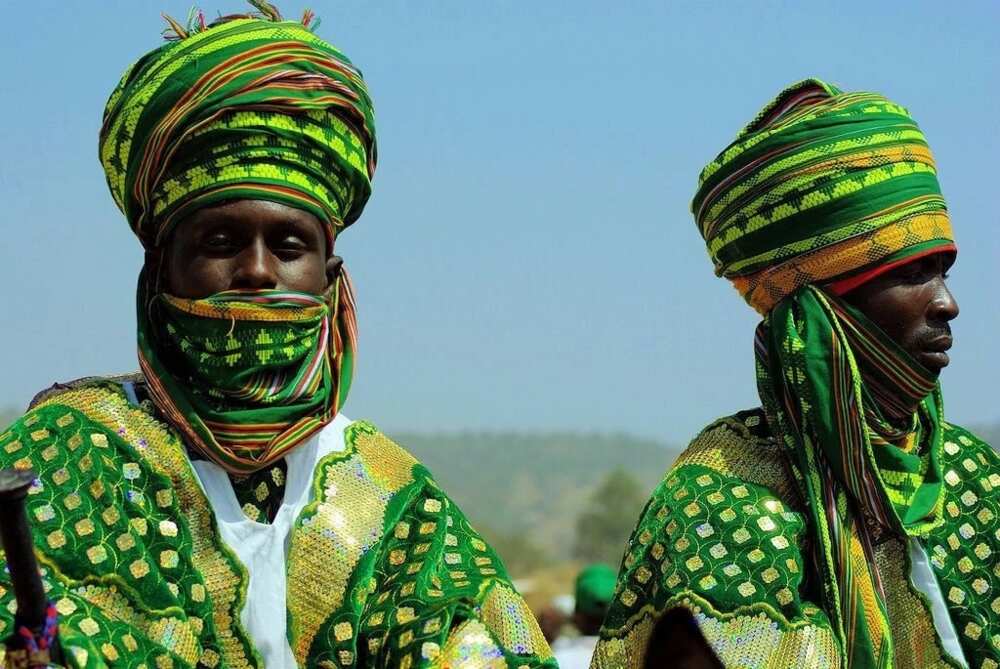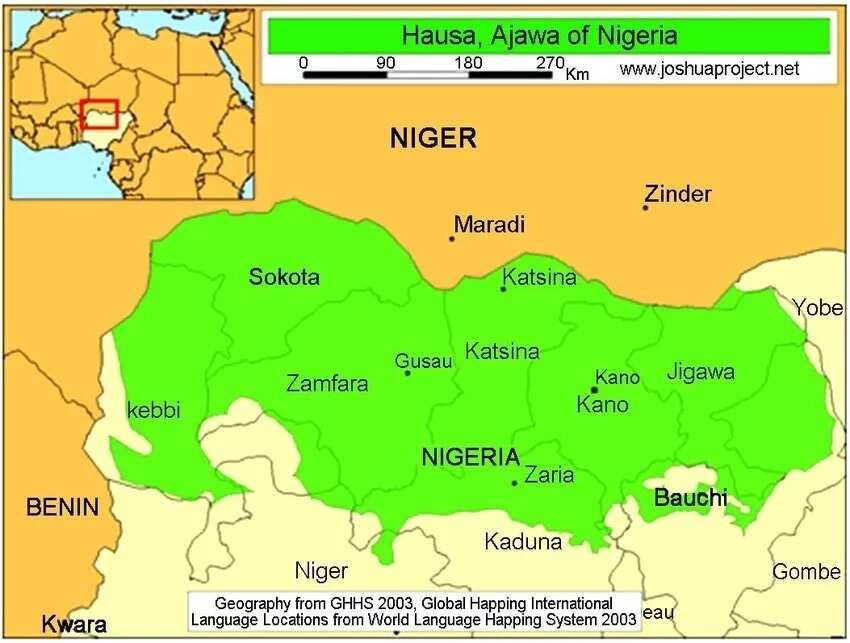Legit Hausa: The Ultimate Guide To Hausa Language, Culture, And Beyond
So, you're here because you want to dive deep into the world of Hausa, right? Well, buckle up, my friend, because we're about to take a journey through the rich tapestry of the Hausa language, culture, and everything that makes it so legit. Whether you're a language enthusiast, a traveler, or just someone curious about one of Africa's most vibrant cultures, you're in for a treat. Hausa isn't just a language—it's a way of life, a bridge between people, and a cultural powerhouse that spans across borders. So, let's get started, shall we?
Now, before we dive into the nitty-gritty of legit Hausa, let's talk about why this matters. Hausa is more than just a spoken word—it's a unifying force in West Africa. With over 50 million speakers, it's one of the most widely spoken languages on the continent. And guess what? It's not just limited to Nigeria. You'll find Hausa speakers in Niger, Chad, Cameroon, and even beyond. So, if you're looking to connect with a huge chunk of Africa's population, learning Hausa could be your golden ticket.
But hey, this isn't just about numbers. It's about the beauty of the language, the warmth of its people, and the depth of its traditions. Whether you're into music, art, or just plain old conversation, Hausa has something special to offer. And trust me, once you start exploring, you won't want to stop. So, grab your notebook, fire up your curiosity, and let's explore the legit side of Hausa together.
Read also:Orphanage Dark Humor The Unspoken Truths And Twisted Laughs
Table of Contents
- The Rich History of Hausa
- Understanding the Hausa Language
- Diving into Hausa Culture
- The Role of Music in Hausa Society
- Exploring Hausa Cuisine
- Hausa Traditions and Celebrations
- Religion and Its Influence
- The Economic Impact of Hausa
- Tips for Learning Hausa
- The Future of Hausa Language
The Rich History of Hausa
Alright, let's rewind a bit and talk about where it all began. The Hausa people have been around for centuries, with their roots tracing back to the ancient Hausa states in West Africa. These states, like Kano, Katsina, and Zaria, were major trading hubs, connecting the Sahara Desert to the fertile lands of the south. And guess what? They didn't just trade goods—they traded ideas, culture, and languages.
Over time, the Hausa language evolved, absorbing influences from Arabic, Kanuri, and even English. But despite all these influences, Hausa has managed to keep its authenticity intact. It's like a sponge that absorbs everything around it but still retains its unique flavor. And that, my friend, is what makes it so legit.
Oh, and let's not forget the role of Islam in shaping Hausa history. The spread of Islam brought not just religion but also a whole new way of life, influencing everything from language to architecture. So, when you're exploring Hausa culture, you're also exploring the history of Islam in West Africa. Pretty cool, huh?
Understanding the Hausa Language
Basic Structure and Grammar
Now, let's get down to business. The Hausa language is part of the Afroasiatic family, which means it shares some similarities with Arabic and Hebrew. But don't let that scare you—it's actually pretty easy to learn once you get the hang of it. The grammar is straightforward, with a subject-verb-object structure that's similar to English.
One of the coolest things about Hausa is its tonal system. Unlike English, where tone doesn't really affect meaning, in Hausa, it can completely change the word. For example, the word "bà" can mean "no" or "person" depending on the tone. So, if you're learning Hausa, pay attention to those tones—they're like the secret code to unlocking the language.
Common Phrases and Vocabulary
Here's a quick cheat sheet to get you started:
Read also:Tuesday Joke Why This Day Needs A Laugh More Than Ever
- Sannu – Hello
- Ina gajiya – I am hungry
- Zaune – Come in
- A kwana – Goodbye
See? It's not that hard, right? And the best part is, once you start speaking Hausa, people will be super impressed. It's like unlocking a secret handshake with millions of people across Africa.
Diving into Hausa Culture
Traditional Clothing
When it comes to fashion, the Hausa people know how to make a statement. Traditional attire like the babban riga (a long, flowing gown) and the jalabia (a robe-like garment) are not just clothes—they're works of art. And let's not forget the colorful wrappers and head ties that add that extra flair.
What's even cooler is that these outfits aren't just for show. They carry deep cultural significance, with each color and pattern telling a story. So, if you're ever invited to a Hausa event, make sure to dress the part—it's part of the experience.
Art and Craft
Hausa artisans are known for their incredible craftsmanship, from intricate wood carvings to beautiful leatherwork. And let's not forget the famous Kano indigo dye pits, which have been producing some of the world's finest indigo for centuries. It's like a living museum of creativity and skill.
And hey, if you're into art, you'll love the vibrant Hausa markets. They're not just places to buy stuff—they're cultural hubs where you can see artisans at work and learn about their techniques. Trust me, it's an experience you won't forget.
The Role of Music in Hausa Society
Music is an integral part of Hausa life, from weddings to festivals to everyday gatherings. Traditional instruments like the algaita (a type of flute), drum, and stringed instruments create a sound that's both haunting and beautiful. And let's not forget the powerful vocals that accompany these melodies—they're like a prayer in song.
One of the most famous Hausa musical traditions is the "Tsohon Takalmi," a form of praise singing that celebrates heroes and leaders. It's not just entertainment—it's a way of preserving history and passing down stories from generation to generation.
And hey, if you're into modern music, you'll love the Hausa pop scene. Artists like Zaki Adiz and Boko Jumbon are blending traditional sounds with modern beats, creating a sound that's both fresh and authentic. So, if you're looking for some new tunes to add to your playlist, Hausa music is a great place to start.
Exploring Hausa Cuisine
Traditional Dishes
Let's talk about the food, because let's be honest, that's probably what you're most excited about. Hausa cuisine is a delicious mix of flavors, with dishes like tuwo shinkafa (a rice pudding-like dish), miya taushe (a spicy soup), and dambu (a type of bread). And don't even get me started on the snacks—things like kuli kuli (peanut cakes) and kara (fried cakes) are absolute heaven.
What makes Hausa food so special is the use of local ingredients and traditional cooking methods. It's like a taste of the land itself, and it's something you won't find anywhere else. So, if you're ever in Hausa territory, make sure to try as much as you can—it's an experience for the senses.
Drinks and Beverages
And of course, no meal is complete without a drink. Hausa beverages like zobo (hibiscus tea) and kunu (a millet or maize drink) are not just refreshments—they're cultural staples. They're often served during special occasions and are a symbol of hospitality.
So, next time you're at a Hausa gathering, don't be surprised if you're offered a glass of zobo. It's not just a drink—it's a gesture of friendship and goodwill. And trust me, it's delicious.
Hausa Traditions and Celebrations
Weddings and Festivals
Weddings are a big deal in Hausa culture, and they're not just about the couple—they're about the entire community. From the elaborate ceremonies to the vibrant celebrations, everything is done with style and flair. And let's not forget the music and dancing—it's like a party that goes on for days.
And then there are the festivals, like the Durbar, a colorful horse parade that celebrates the end of Ramadan. It's a spectacle of music, dance, and pageantry, and it's something you have to see to believe. So, if you're ever in the area during one of these festivals, make sure to check it out—it's an experience you'll never forget.
Religion and Its Influence
Islam has a profound influence on Hausa culture, shaping everything from daily life to art and architecture. Mosques are not just places of worship—they're community centers where people gather to pray, learn, and socialize.
And let's not forget the role of religious leaders, who are not just spiritual guides but also educators and advisors. They play a crucial role in maintaining the social fabric of Hausa society, and their influence can be seen in everything from education to politics.
So, if you're interested in religion, the Hausa experience offers a unique perspective on how faith and culture can intertwine to create something truly special.
The Economic Impact of Hausa
Hausa isn't just a cultural powerhouse—it's an economic one too. The Hausa people are known for their entrepreneurial spirit, and you'll find Hausa traders and businessmen all over Africa and beyond. From the bustling markets of Kano to the global trade networks, Hausa commerce is a force to be reckoned with.
And let's not forget the role of education. Hausa-speaking regions have some of the best educational institutions in West Africa, producing leaders, scholars, and innovators who are shaping the future of the continent. So, whether you're looking to do business or pursue education, the Hausa world has a lot to offer.
Tips for Learning Hausa
Start with the Basics
If you're new to Hausa, start with the basics—greetings, common phrases, and simple sentences. It's like building a foundation for your language journey. And don't worry if you make mistakes—that's part of the process.
Immerse Yourself
The best way to learn any language is to immerse yourself in it. Surround yourself with Hausa speakers, listen to Hausa music, and watch Hausa movies. The more you expose yourself to the language, the faster you'll learn.
Find a Tutor
And hey, if you're serious about learning Hausa, consider finding a tutor. They can help you with pronunciation, grammar, and all those tricky tones. Plus, it's always fun to have someone to practice with.
The Future of Hausa Language
So, where is Hausa headed in the future? Well, with globalization and technology, the language is evolving rapidly. Young Hausa speakers are blending traditional sounds with modern influences, creating a new kind of Hausa that's both authentic and contemporary.
And let's not forget the role of education. With more and more Hausa-speaking regions investing in education, the future looks bright for the language. Who knows? Maybe one day, Hausa will be as widely spoken as English or Spanish.
So, whether you're a language enthusiast, a traveler, or just someone curious about the world, the Hausa language and culture have something special to offer. And trust me, once you start exploring, you'll see just how legit Hausa really is.
Kesimpulan
Alright, so there you have it—the ultimate guide to legit Hausa. From its rich history to its vibrant culture, Hausa is a language and culture that's worth exploring. Whether you're into music, food, or just plain old conversation, Hausa has something for everyone.
And hey, if you've learned something new today, why not share it with your friends? Or better yet, start learning Hausa yourself. Who knows? You might just find yourself speaking Hausa fluently in no time.
Article Recommendations


